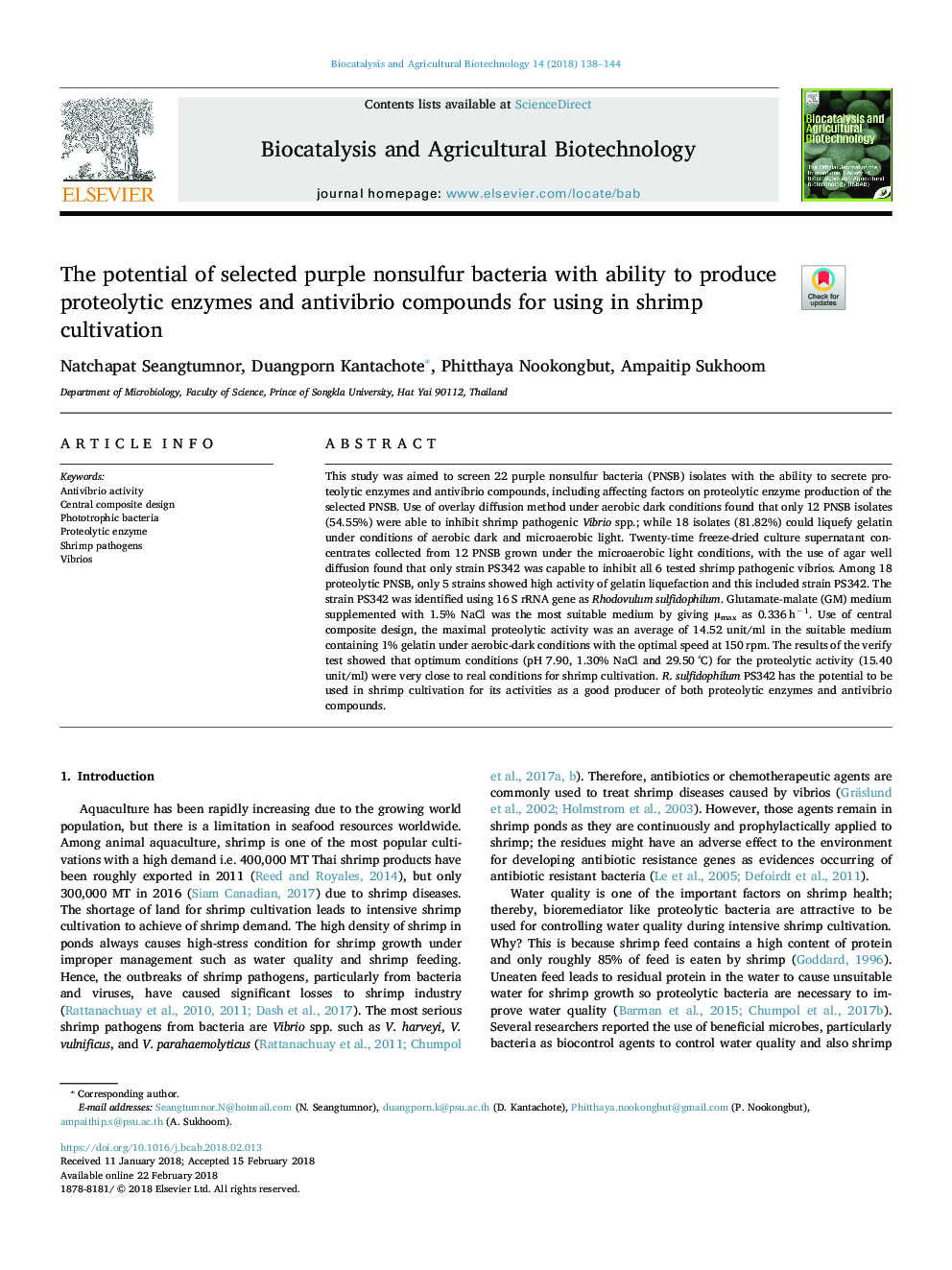| Article ID | Journal | Published Year | Pages | File Type |
|---|---|---|---|---|
| 8405812 | Biocatalysis and Agricultural Biotechnology | 2018 | 7 Pages |
Abstract
This study was aimed to screen 22 purple nonsulfur bacteria (PNSB) isolates with the ability to secrete proteolytic enzymes and antivibrio compounds, including affecting factors on proteolytic enzyme production of the selected PNSB. Use of overlay diffusion method under aerobic dark conditions found that only 12 PNSB isolates (54.55%) were able to inhibit shrimp pathogenic Vibrio spp.; while 18 isolates (81.82%) could liquefy gelatin under conditions of aerobic dark and microaerobic light. Twenty-time freeze-dried culture supernatant concentrates collected from 12 PNSB grown under the microaerobic light conditions, with the use of agar well diffusion found that only strain PS342 was capable to inhibit all 6 tested shrimp pathogenic vibrios. Among 18 proteolytic PNSB, only 5 strains showed high activity of gelatin liquefaction and this included strain PS342. The strain PS342 was identified using 16â¯S rRNA gene as Rhodovulum sulfidophilum. Glutamate-malate (GM) medium supplemented with 1.5% NaCl was the most suitable medium by giving µmax as 0.336â¯hâ1. Use of central composite design, the maximal proteolytic activity was an average of 14.52 unit/ml in the suitable medium containing 1% gelatin under aerobic-dark conditions with the optimal speed at 150â¯rpm. The results of the verify test showed that optimum conditions (pH 7.90, 1.30% NaCl and 29.50â¯Â°C) for the proteolytic activity (15.40 unit/ml) were very close to real conditions for shrimp cultivation. R. sulfidophilum PS342 has the potential to be used in shrimp cultivation for its activities as a good producer of both proteolytic enzymes and antivibrio compounds.
Related Topics
Life Sciences
Agricultural and Biological Sciences
Agricultural and Biological Sciences (General)
Authors
Natchapat Seangtumnor, Duangporn Kantachote, Phitthaya Nookongbut, Ampaitip Sukhoom,
